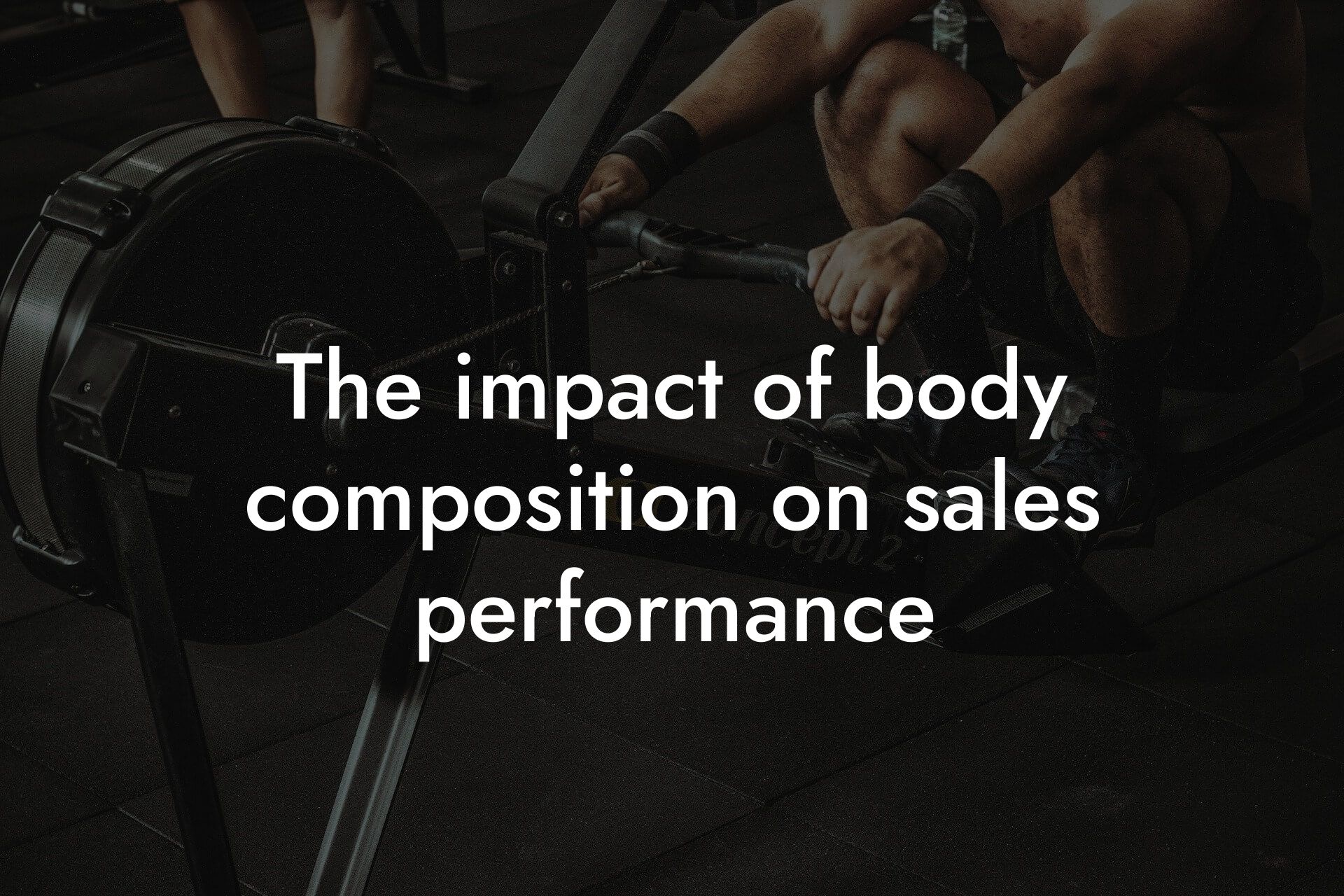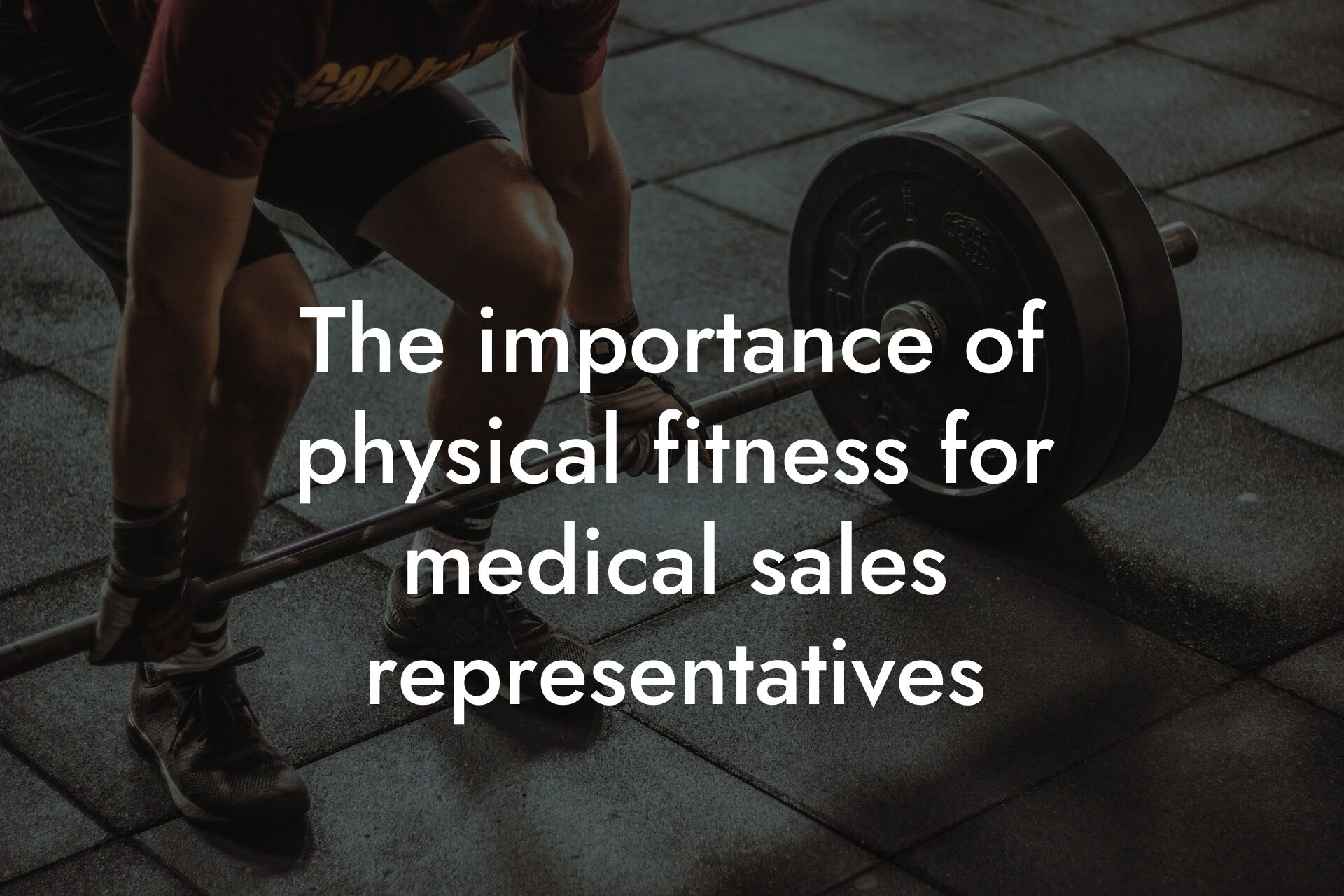As a pharmaceutical sales professional, you understand the importance of being at the top of your game. Your physical and mental well-being can greatly impact your performance, and ultimately, your success in the industry. That's where DEXA scans come in – a game-changing tool that can help you optimize your body composition, bone density, and overall health. In this article, we'll delve into the benefits of DEXA scans specifically for pharmaceutical sales professionals, and how they can help take your career to the next level.
Table of Contents
- What is a DEXA Scan?
- The Benefits of DEXA Scans for Pharmaceutical Sales Professionals
- Optimizing Body Composition for Peak Performance
- Identifying and Managing Health Risks
- Enhancing Mental Clarity and Focus
- Improving Sleep Quality and Reducing Fatigue
- Boosting Confidence and Self-Esteem
- Integrating DEXA Scans into Your Wellness Routine
- Frequently Asked Questions
What is a DEXA Scan?
A DEXA (Dual-Energy X-ray Absorptiometry) scan is a non-invasive, pain-free medical imaging test that measures bone density, body composition, and fat distribution. It's commonly used to diagnose osteoporosis, but its applications extend far beyond that. A DEXA scan provides a comprehensive picture of your body's composition, including lean mass, fat mass, and bone density, giving you valuable insights into your overall health.
The Benefits of DEXA Scans for Pharmaceutical Sales Professionals
As a pharmaceutical sales professional, you're likely no stranger to the demands of the job. Long hours, frequent travel, and high-pressure meetings can take a toll on your physical and mental health. A DEXA scan can help you identify areas for improvement, allowing you to make data-driven decisions about your health and wellness. Here are just a few benefits of DEXA scans specifically for pharmaceutical sales professionals:
Optimizing Body Composition for Peak Performance
A DEXA scan provides a detailed breakdown of your body composition, including lean mass, fat mass, and body fat percentage. This information is crucial for pharmaceutical sales professionals, as it can help you optimize your body composition for peak performance. By identifying areas of excess fat or lean mass, you can tailor your diet and exercise routine to improve your overall health and energy levels.
Identifying and Managing Health Risks
A DEXA scan can also identify potential health risks, such as osteoporosis, sarcopenia, and visceral fat accumulation. As a pharmaceutical sales professional, you're likely aware of the importance of managing health risks to maintain your physical and mental well-being. A DEXA scan can help you identify these risks early on, allowing you to take proactive steps to mitigate them.
Enhancing Mental Clarity and Focus
A DEXA scan can also provide insights into your body's nutritional and hormonal status, which can have a significant impact on your mental clarity and focus. By identifying areas of nutritional deficiency or hormonal imbalance, you can make targeted changes to your diet and lifestyle to improve your cognitive function and overall mental well-being.
Improving Sleep Quality and Reducing Fatigue
Sleep quality and fatigue are critical issues for pharmaceutical sales professionals, who often work long hours and travel frequently. A DEXA scan can help you identify underlying factors contributing to fatigue, such as hormonal imbalances or nutritional deficiencies. By addressing these underlying issues, you can improve your sleep quality and reduce fatigue, leading to improved performance and productivity.
Boosting Confidence and Self-Esteem
A DEXA scan can also have a profound impact on your confidence and self-esteem. By providing a detailed picture of your body composition and health, a DEXA scan can help you feel more empowered and in control of your physical and mental well-being. This can translate to improved performance and success in your career as a pharmaceutical sales professional.
Integrating DEXA Scans into Your Wellness Routine
So, how can you integrate DEXA scans into your wellness routine as a pharmaceutical sales professional? Here are a few tips:
- Schedule regular DEXA scans to track your progress and identify areas for improvement.
- Use the data from your DEXA scan to inform your diet and exercise routine.
- Work with a healthcare professional or registered dietitian to develop a personalized wellness plan.
- Share your DEXA scan results with your healthcare team to ensure a comprehensive approach to your health and wellness.
By incorporating DEXA scans into your wellness routine, you can take a proactive approach to your health and wellness, leading to improved performance, productivity, and overall success as a pharmaceutical sales professional.
In conclusion, DEXA scans offer a wealth of benefits for pharmaceutical sales professionals. By providing a comprehensive picture of your body composition, bone density, and overall health, a DEXA scan can help you optimize your physical and mental well-being, leading to improved performance and success in your career. Whether you're looking to improve your body composition, manage health risks, or boost your confidence and self-esteem, a DEXA scan is a valuable tool that can help you achieve your goals.
At Tano Performance Group, we're dedicated to helping high-earning professionals like you achieve optimal physical and mental well-being. Our state-of-the-art DEXA machine provides a comprehensive body assessment, giving you the insights you need to take your business to the next level. Contact us today to learn more about our DEXA scan services and how they can benefit your career as a pharmaceutical sales professional.
Frequently Asked Questions
What is a DEXA scan?
A DEXA (Dual-Energy X-ray Absorptiometry) scan is a non-invasive medical test that measures bone density, body composition, and fat distribution. It's commonly used to diagnose osteoporosis, but it also provides valuable information about muscle mass, visceral fat, and other health metrics.
How does a DEXA scan work?
A DEXA scan uses low-level X-rays to produce images of the body's internal structures. It measures the absorption of X-rays by the body, which is affected by the density of bones and soft tissues. The scan takes about 10-15 minutes to complete, and it's painless and non-invasive.
What are the benefits of DEXA scans for pharmaceutical sales professionals?
DEXA scans can provide pharmaceutical sales professionals with valuable insights into their overall health, helping them identify areas for improvement and track the effectiveness of their fitness and nutrition regimens. This can lead to increased energy, improved physical appearance, and enhanced professional performance.
How can DEXA scans help with weight loss?
DEXA scans provide detailed information about body composition, including fat mass, lean mass, and visceral fat. This data can help pharmaceutical sales professionals develop targeted weight loss strategies, monitor their progress, and make adjustments as needed.
Can DEXA scans detect osteoporosis?
Yes, DEXA scans are commonly used to diagnose osteoporosis, a condition characterized by brittle or porous bones. The scan measures bone density, which can indicate the risk of osteoporosis and fractures.
How often should I get a DEXA scan?
The frequency of DEXA scans depends on individual circumstances. For pharmaceutical sales professionals, it's recommended to get a scan every 6-12 months to track changes in body composition and bone density.
Is a DEXA scan painful?
No, a DEXA scan is a non-invasive and painless procedure. You'll lie down on a table, and the scanner will move above your body, taking images of your internal structures.
Are DEXA scans safe?
Yes, DEXA scans are extremely safe. They use low-level X-rays, which are much safer than traditional X-rays. The radiation exposure is minimal, and the scan does not require any injections or invasive procedures.
Can I get a DEXA scan if I'm pregnant or breastfeeding?
It's generally recommended to avoid DEXA scans during pregnancy and breastfeeding, as the X-rays may pose a risk to the fetus or baby. However, your healthcare provider may recommend a scan in certain circumstances, such as if you have a high risk of osteoporosis.
How long does it take to get the results of a DEXA scan?
The results of a DEXA scan are usually available within 24-48 hours. Your healthcare provider will review the results with you, explaining the findings and providing recommendations for improvement.
What does a DEXA scan report look like?
A DEXA scan report typically includes detailed information about bone density, body composition, and fat distribution. It may also include graphs and charts to help you visualize the data and track changes over time.
Can I use a DEXA scan to track my progress?
Yes, DEXA scans are an excellent way to track changes in your body composition and bone density over time. By comparing the results of multiple scans, you can see how your fitness and nutrition regimens are impacting your overall health.
How can I prepare for a DEXA scan?
To prepare for a DEXA scan, avoid eating or drinking for at least 2 hours before the scan. Wear comfortable clothing and avoid wearing metal objects or jewelry that may interfere with the scan.
What is the cost of a DEXA scan?
The cost of a DEXA scan varies depending on the location, healthcare provider, and insurance coverage. On average, the cost ranges from $100 to $300 per scan.
Is a DEXA scan covered by insurance?
Insurance coverage for DEXA scans varies depending on the provider and policy. Some insurance plans may cover the scan for diagnostic purposes, while others may not cover it for wellness or fitness purposes.
How does a DEXA scan compare to other body composition tests?
DEXA scans are considered one of the most accurate and reliable methods for measuring body composition. They provide detailed information about bone density, fat mass, and lean mass, making them more comprehensive than other tests like bioelectrical impedance analysis (BIA) or skinfold measurements.
Can I get a DEXA scan at my doctor's office?
Some doctor's offices may offer DEXA scans, but it's more common to find them at specialized imaging centers or hospitals. You can ask your healthcare provider for recommendations on where to get a scan.
How can I find a qualified healthcare provider to administer a DEXA scan?
You can ask your primary care physician for a referral to a qualified healthcare provider who offers DEXA scans. You can also search online for imaging centers or hospitals in your area that offer the scan.
What are some common misconceptions about DEXA scans?
One common misconception is that DEXA scans are only for older adults or those at high risk of osteoporosis. However, they can benefit anyone looking to improve their overall health and fitness. Another misconception is that the scan is painful or invasive, which is not true.
How can I use the results of a DEXA scan to improve my fitness routine?
By analyzing the results of a DEXA scan, you can identify areas for improvement in your fitness routine. For example, if the scan shows low bone density, you may want to incorporate more weight-bearing exercises into your routine. If the scan shows high visceral fat, you may want to focus on core exercises and diet changes.
Can I use a DEXA scan to track my muscle gain or loss?
Yes, DEXA scans can track changes in muscle mass over time. This can be particularly useful for pharmaceutical sales professionals who engage in resistance training or other forms of exercise to improve their physique.
How does a DEXA scan differ from a bone density test?
A DEXA scan is a type of bone density test, but it provides more comprehensive information about body composition, including fat mass, lean mass, and visceral fat. Traditional bone density tests may only measure bone density.
Can I get a DEXA scan if I have metal implants or pacemakers?
It's generally recommended to avoid DEXA scans if you have metal implants or pacemakers, as the X-rays may interfere with these devices. However, your healthcare provider may recommend alternative testing methods or modifications to the scan to ensure your safety.
Here are some related articles you might love...
- The impact of body composition on sales performance
- The importance of physical fitness for medical sales representatives
- How to stay active during travel-heavy sales roles
- The role of physical health in building client trust
- Managing stress and maintaining fitness in high-stakes sales
- Nutrition strategies for maintaining energy during long sales days
- Balancing client meetings with personal fitness goals
- Quick workouts for sales professionals on the go
- How physical fitness can improve sales performance and stamina
Zak Faulkner
Zak Faulkner is a leading authority in the realm of physical health and body composition analysis, with over 15 years of experience helping professionals optimise their fitness and well-being. As one the experts behind Tano Performance Group, Zak has dedicated his career to providing in-depth, science-backed insights that empower clients to elevate their physical performance and overall health.
With extensive knowledge of DEXA technology, Zak specializes in delivering comprehensive body assessments that offer precise data on body fat, muscle mass, bone density, and overall physique. His expertise enables individuals to make informed decisions and achieve their fitness goals with accuracy and confidence. Zak’s approach is rooted in a deep understanding of human physiology, combined with a passion for helping clients unlock their full potential through personalised strategies.
Over the years, Zak has earned a reputation for his commitment to excellence, precision, and client-focused service. His guidance is trusted by top professionals who demand the best when it comes to their health. Whether advising on fitness programs, nutritional strategies, or long-term wellness plans, Zak Faulkner’s insights are a valuable resource for anyone serious about taking their health and fitness to the next level.
At Tano Performance Group, Zak continues to lead our Content Team revolutionising how professionals approach their physical health, offering unparalleled expertise that drives real results.




